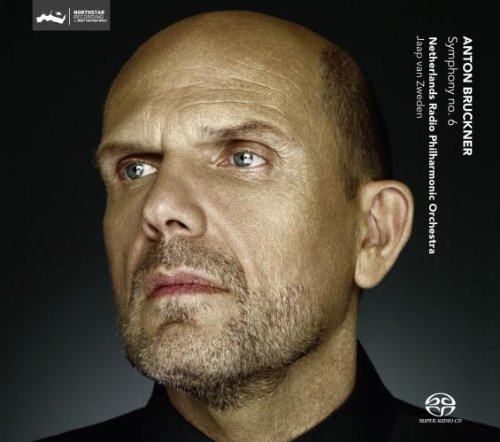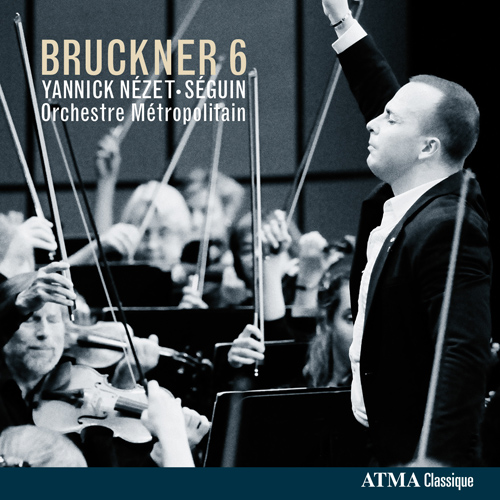BRUCKNER Symphony No 6
Bruckner’s ‘cheeky’ symphony from orchestras in Amsterdam and Montreal
View record and artist detailsRecord and Artist Details
Composer or Director: Anton Bruckner
Genre:
Orchestral
Label: Challenge Classics
Magazine Review Date: AW2013
Media Format: Super Audio CD
Media Runtime: 56
Mastering:
DDD
Catalogue Number: CC72552

Tracks:
| Composition | Artist Credit |
|---|---|
| Symphony No. 6 |
Anton Bruckner, Composer
Anton Bruckner, Composer Jaap Van Zweden, Conductor Netherlands Radio Philharmonic Orchestra |
Composer or Director: Anton Bruckner
Genre:
Orchestral
Label: ATMA
Magazine Review Date: AW2013
Media Format: CD or Download
Media Runtime: 46
Mastering:
DDD
Catalogue Number: ACD2 2639

Tracks:
| Composition | Artist Credit |
|---|---|
| Symphony No. 6 |
Anton Bruckner, Composer
Anton Bruckner, Composer Orchestre Métropolitain Yannick Nézet-Séguin, Conductor |
Author: Edward Seckerson
Jaap van Zweden and the Netherlands Radio Philharmonic Orchestra lend the opening pages a brazen impulsiveness with even the songful second subject pushing forwards in an imperative manner. Impulse is the key here and van Zweden has its measure, making one of the shorter Bruckner symphonies feel even shorter. There is what can only be described as a rightness about his tempi and the way he connects them through the tension and release of transition. The whole is as spontaneous as it is organic.
Yannick Nézet-Séguin – whose Bruckner I much admire for its impious manner and for the way in which it balances Bruckner, the outdoor man, and Bruckner, the devout spiritualist – is a fraction more interventionist in his reading, with such passages as the brassy build into the first-movement coda more pointed towards underlining the glorious uplift of the harmony where van Zweden is content to let it simply evolve.
The slow movement is one of Bruckner’s most affectingly human (the plangency of the oboe’s countermelody at the start tells us as much) and again, while van Zweden mines the air of mystery at its heart through the atmosphere of some beautiful playing from the Netherlands Radio PO, Nézet-Séguin more consciously probes, opening out the tempo and lingering (discreetly) over this detail or that. His Orchestre Métropolitain is good, too, but cannot match van Zweden’s Netherlanders in incisiveness and articulation. For uplift and impulse they simply cut a sharper dash.
Which is not to say that Nézet-Séguin is inferior or disappointing, just subtly different in approach – a bit like the Haas (1935) and Nowak (1952) editions which Nézet-Séguin and van Zweden respectively elect. No radical differences there, either. Of the two – both well engineered for spatial effect and impact – I would probably plump for van Zweden, whose tighter grip seems paradoxically to free the music in the most invigorating way.
Explore the world’s largest classical music catalogue on Apple Music Classical.
Included with an Apple Music subscription. Download now.

Gramophone Digital Club
- Digital Edition
- Digital Archive
- Reviews Database
- Full website access
From £8.75 / month
Subscribe
Gramophone Full Club
- Print Edition
- Digital Edition
- Digital Archive
- Reviews Database
- Full website access
From £11.00 / month
Subscribe
If you are a library, university or other organisation that would be interested in an institutional subscription to Gramophone please click here for further information.




